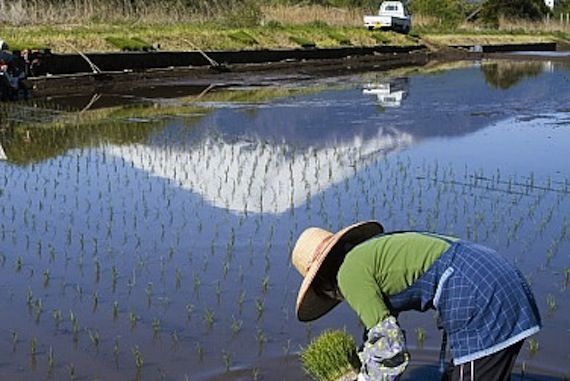
Japan’s Central Union of Agricultural Co-operatives, JA-Zenchu has warned that the reform of the country’s agricultural co-operatives should be an internal process, rather than one driven by the government.
Under a reform bill approved by the government in April, JA-Zenchu is to become a non-profit general incorporated association by March 2019. The organisation will lose the authority it currently has in terms of auditing local co-ops. JA-Zenchu will retain its status as the representation of regional agricultural co-operatives.
The reformed Agricultural Co-operatives Act will also enable co-operatives to choose as their auditing body either the auditing company spun off from JA Zenchu or a commercial auditing company. The union will lose its status in the new law, which it has in the present law. The bill would enable the conversion of the National Federation of Agricultural Co-operatives (Zen-Noh) and prefecture level Economic Federations of Agricultural Co-operatives into stock companies with agricultural co-operatives as their stakeholders.
JA-Zenchu was responsible for instructing and auditing the country’s 690 agricultural co-ops. The bill is the first to drastically reform the country’s agricultural co-operatives system in 60 years. As Japan’s Diet is discussing the bill, JA-Zenchu is calling for a self-reform process, rather than a government-driven approach. The revised act calls for maximum consideration to be given to increasing the income of farmers, a reference not seen under the current Agricultural Co-operatives Act. The bill will be enacted in April 2016.
The JA Group is exploring the potential future roles of agricultural co-operatives in the improvement of farmers’ incomes and local revitalisations. The JA Group plans to work on cutting farm production costs by reforming distribution systems in order to reduce material procurement costs, and establishing and diffusing cost-cutting production technologies. The unions and federations also want to set up support centres at local and national levels to help farmers engaging in large-scale farming.
JA-Zenchu’s recommendations will be included in a draft proposal on how to achieve organisational and operational reform that will be tabled at the 27th national meeting of Japanese agricultural co-operatives in October. At the meeting the assembly is expected to adopt a resolution on the proposed self-reform.
The union believes that if Japan’s agricultural co-operatives are weakened, their members and their regions will be adversely affected, possibly leading to the decline of regional economies.




